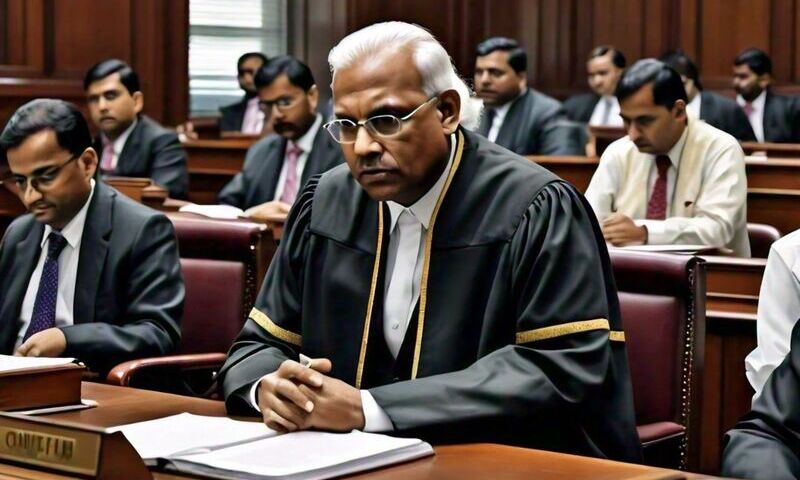
How Indian Judiciary Is Condemned in the World
These are the excerpts from the latest “India Judicial Research Report 2024: Decline of the Indian Judiciary”
CONDEMNATION OF INDIAN JUDICIARY
Global reports reveal multiple irregularities in the Indian judicial systems. In the latest 2023 Rule of Law Index of the World Justice Project (WJP), for example, India’s score declined from 0.50 in 2022 to 0.49 in 2023 and India ranked 79th across 142 countries in 2023 while the civil and criminal justice systems in the country are on the verge of collapse. The scores of India have been constantly falling since 2015.
The Rule of Law Index also shows that the ranking of even very small and poor countries is better than that of India. For example, Sri Lanka (77), Nepal (71), Indonesia (66), Ghana (61), Jamaica (54), Kuwait (52), and Mauritius (46) perform better on the Index.
The Index takes into account various factors to determine the state of judiciary in a country. These factors include government interference, corruption, fundamental rights of citizens, government transparency, regulatory enforcement, civil justice, and criminal justice.
RELATED REPORTS
[ India Judicial Research Report 2024 Released ]
[ India Judicial Research Report 2024: Decline of the Indian Judiciary ]
[ Negligible Use of Technology in Indian Courts: Research Report on Indian Judiciary ]
According to WJP analysis, the Indian judicial system fails to protect fundamental rights of citizens. With a score of 0.46 on the Rule of Law Index, India is ranked at 99th position in the list of 142 countries.
Similarly, corruption is another main cause of deteriorating judicial functions in India as on the corruption parameter India’s rank is 96 out of 142 countries with a score of 0.40.
The corruption factor considers three forms of corruption: bribery, improper influence by public or private interests, and misappropriation of public funds or other resources.
These three forms of corruption are examined with respect to government officers in the executive branch, the judiciary, the military, police, and the legislature.
While corruption is rampant in the Indian judiciary, there is no accountability for judges and lawyers. Even when the corruption complaints against judges are accepted, the Supreme Court and the high courts conduct perfunctory investigations just to acquit the corrupt judges.
Therefore, the World Justice Project findings are consistent with the incidents of increasing judicial corruption in India. The 2023 Corruption Perceptions Index (CPI) released in January 2024 by global anti-corruption research organization Transparency International states that the world is experiencing a decline in the functioning of justice systems.
According to Transparency International, countries with the lowest scores in the Rule of Law Index are also scoring very low on the CPI, highlighting a clear connection between access to justice and corruption.
Judicial productivity in India is also an irritant. According to research by the Washington, DC-based Carnegie Endowment for International Peace, the productivity of Indian judges is very low. Judicial productivity is calculated as the ratio of judges to case disposals per year.
The low-productivity factor can be attributed to lack of understanding of law and limited communication skills of judges. The research suggests that judicial productivity in Delhi district courts is about half of that in Australian courts, adding that increasing the number of judges without finding ways to improve their productivity is, in fact, a half measure.